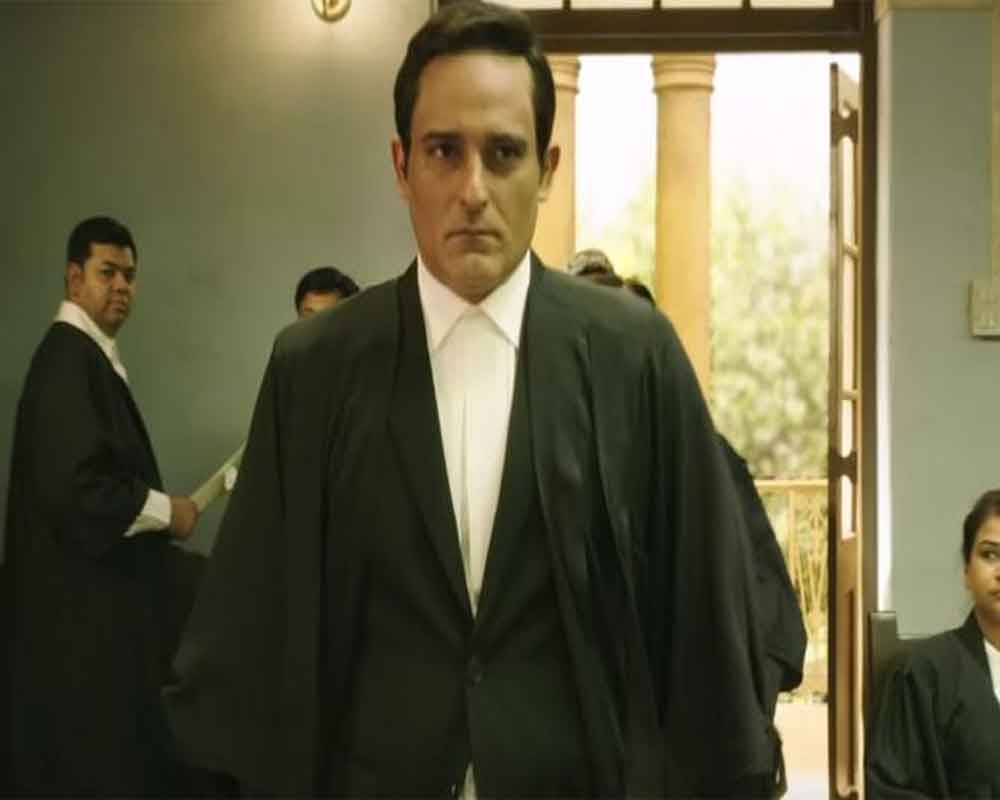Actor Akshaye Khanna tells Ayushi Sharma that the film Section 375 is not just a cinematic experience but will lead to important conversations that we must have as a society
Akshaye Khanna looks broodingly intense most of the time, making you believe that he is in constant workshop mode about the complex characters he plays. But he tells us that he really has a simple process and that an actor’s reaction is always to a particular story, character and not to its legal implications or complexities, which are many. “For instance, suppose I am playing a journalist, my focus would be on what a particular journalist is doing at a specific time and context, which story is he following but I cannot understand the whole grammar of journalism, right? Any character related to a profession cannot explain it comprehensively but instead give a glimpse of it to make the viewers understand about that role. Similarly, with my role as a criminal defence lawyer in Section 375, I am portraying my character within the confines of a specific narrative.” If you thought that he did extensive research, then he dispels that cerebral thought. Perhaps, as a perceptive actor, he doesn’t need it. He anyway picks up and grasps the right accents.
“It’s important for people to remember that an accused is innocent until prosecutors prove him guilty,” says the actor. “Sometimes when one takes up a case, people have already made up their minds that the accused is guilty even if he’s not or he is innocent even if in reality he is guilty. It happens especially in the cases that affect the public overwhelmingly. They tend to make their own judgements even before the court has given out the verdict. This usually happens in high-profile cases, where a big lawyer is involved. People start saying ‘isko yeh case nahi lena chahiye tha. Why did he even take it?’ I think, every lawyer, in his/her entire career, has been through it, where s/he is left to question whether they should defend an accused or just listen to his conscience. And this pressurises a lawyer to the core,” says he.
While the actor has never failed to impress with his performances in every other film, he attributes their efficacy to the script. Says he, “My character of Tarun Saluja is primarily based on writing. The understanding of it doesn’t go beyond that. Everything is within the parameters of the script. It’s difficult for me to leave a mark on you with an intelligent answer.”
The film raises many vital questions and makes people aware about Section 375 of IPC, which clearly defines rape as sexual intercourse with a woman against her will, without her consent, by coercion, misrepresentation or fraud or at a time when she has been intoxicated or duped or is of unsound mental health and in any case if she is under 18 years of age. It’s not just a cinematic experience but will lead to very important conversations that we must have as a society.
As Khanna says, “It’s a great story. And the way it’s told is something that I am sure it will force the audience to think. It’s something that is way different from any other experience that you have had.”
The directness with which Khanna speaks shows in his characters too. He knows that he needs to imbibe the energy of any role to do it flawlessly. “The responsibility comes with every role that I play. If I am playing a journalist or a waiter, a driver or a sportsman, the commitment as an actor is always the same. There’s no difference at all. It’s not like if I am wearing a uniform, I will put more efforts while playing that role. My devotion to it remains the same and I think, it should be like that.”
Films are a very impactful medium, believes the actor, and the most expressive of the performance arts. But he swears by the basic art of story-telling. “There is no artform that precedes story-telling,” Khanna adds and says, “It’s the original, which is why even today, at a very basic human level, story-telling is considered to be very attractive, be it as a narrative of your mother and grandfather, a meaningful film, an amazing book or a great story by a journalist. We need to be constantly told stories. As in the end, people want to hear about and reference themselves against other people.”
Photo: Pankaj Kumar


























